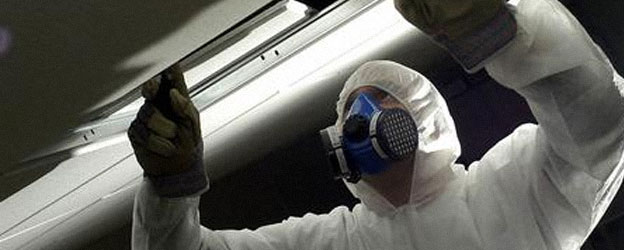Independent asbestos surveys in Leeds
Are you searching for independent asbestos surveys in Leeds
HSG Surveys offers professional, straightforward, independent asbestos surveys in Leeds. We provide asbestos management and refurbishment surveys, management plans, and sampling services
Call: 07703 203930
Email: jb@hsgasbestossurveys.co.uk
Affordable asbestos surveys in Leeds
We provide asbestos management surveys, refurbishment surveys, and asbestos sampling at clear, fixed prices.
Complete property asbestos surveys
Our surveys cover residential, commercial, and industrial properties. Each report includes clear findings and practical advice. These services are ideal for landlords, pre-work checks, or general compliance.
- Suitable for homes, workplaces, and industrial buildings
- Clear recommendations where asbestos is identified
- No hidden costs
- All laboratory fees included
- UKAS-accredited testing
Independent Asbestos sampling services in Leeds – quick and reliable
If you are concerned about a specific material and do not need a full survey, we offer an asbestos sampling service for £150.00. This includes up to two samples.
We inspect the material, collect samples safely, and provide fast, UKAS-accredited results.
Targeted asbestos sampling for £150
Includes:
- Site visit
- Up to two samples
- Laboratory testing
- Results within three working days
We commonly test:
- Artex and textured coatings
- Floor tiles and adhesives
- Pipe insulation and lagging
- Soffits, guttering, and external cladding
You will receive a clear report confirming whether asbestos is present.
Why choose HSG Surveys?
- Fully qualified asbestos surveyors (P402)
- Fixed pricing with no surprises
- Quick turnaround and UKAS-accredited results
- Weekend appointments available at no extra cost
- Covering Leeds, Bradford, and surrounding towns
We provide honest advice, practical recommendations, and ensure full compliance with UK asbestos regulations.
Asbestos management surveys for landlords and businesses
If you own or manage a non-domestic property, you have legal duties under the Control of Asbestos Regulations 2012.
Our asbestos management surveys in Leeds help landlords, businesses, and organisations comply with Regulation 4, the Duty to Manage.
We Provide, independent asbestos surveys in Leeds
- Full site inspections
- Asbestos registers
- Risk assessments
- Management plans, if required
- Ongoing, practical advice
Often required when selling, leasing, or maintaining older properties.
Asbestos refurbishment and demolition surveys
If you are planning refurbishment, renovation, or demolition work, you must have an asbestos refurbishment and demolition survey before any intrusive work begins. This is a legal requirement.
Our R&D surveys in Leeds find asbestos-containing materials that could be disturbed during building work. This helps protect contractors, occupants, and the public.
We regularly work with:
- Builders
- Property developers
- Housing associations
Call HSG Surveys: 07703 203930 Local Asbestos Surveyors in Leeds
Email: jb@hsgasbestossurveys.co.uk Get a Quote

